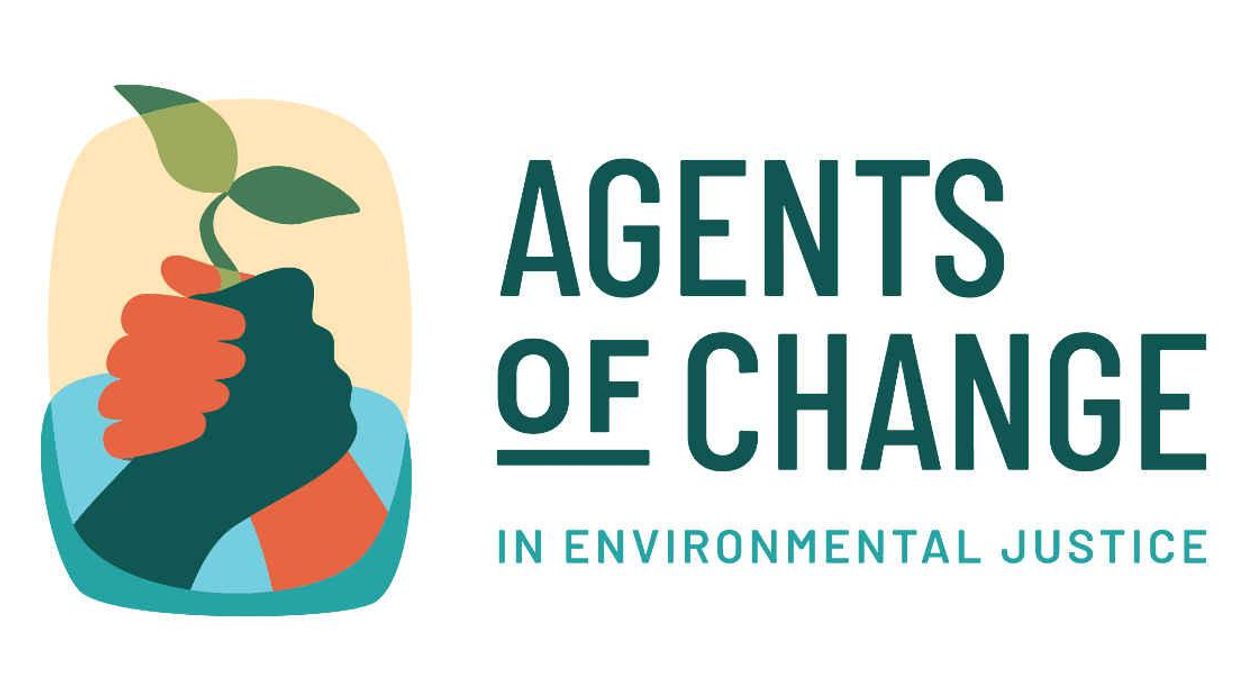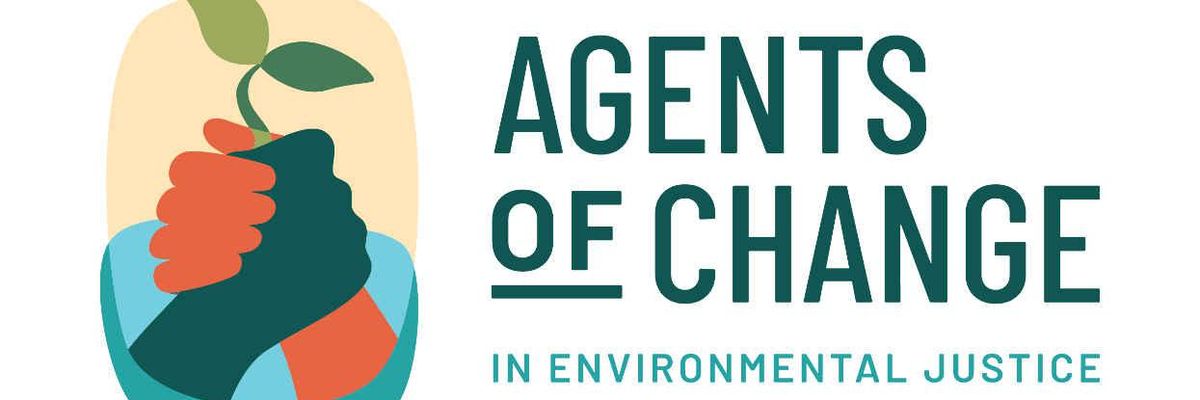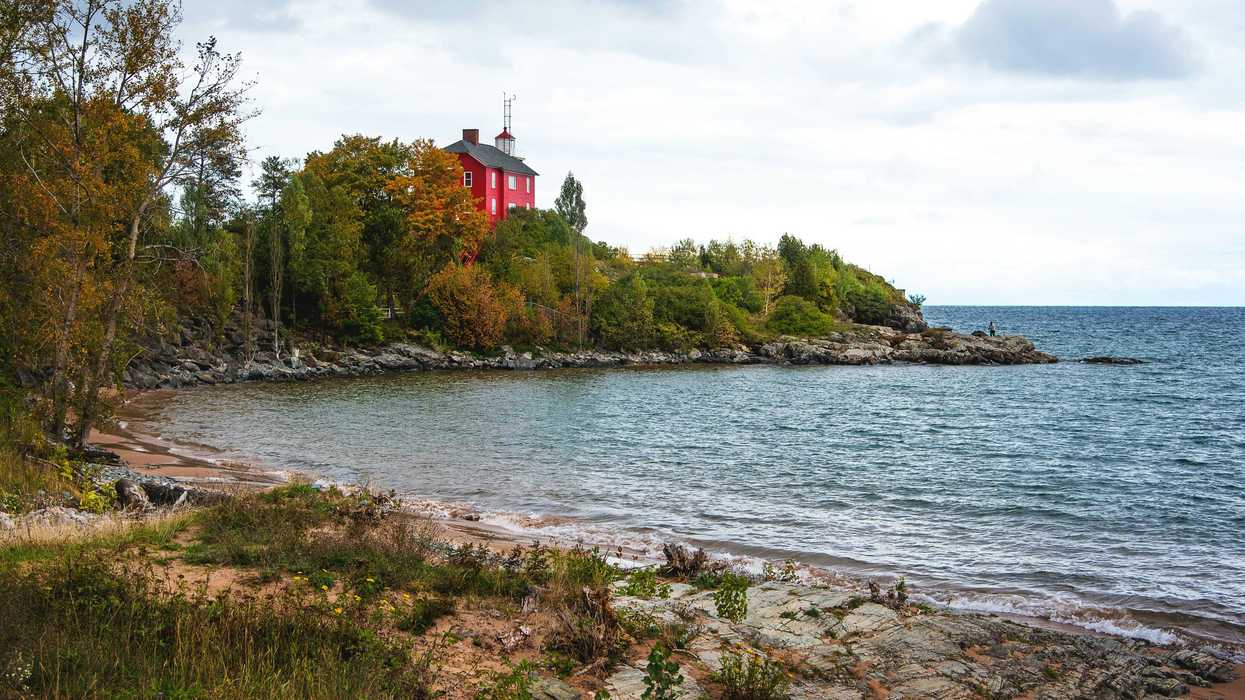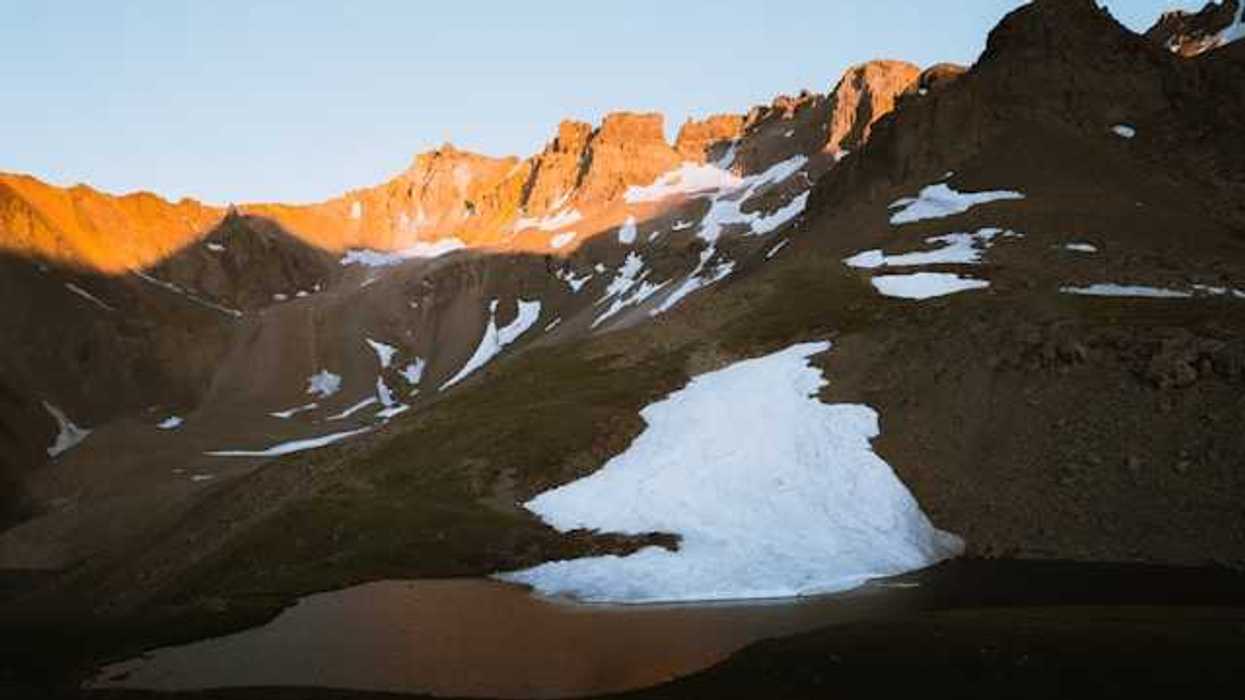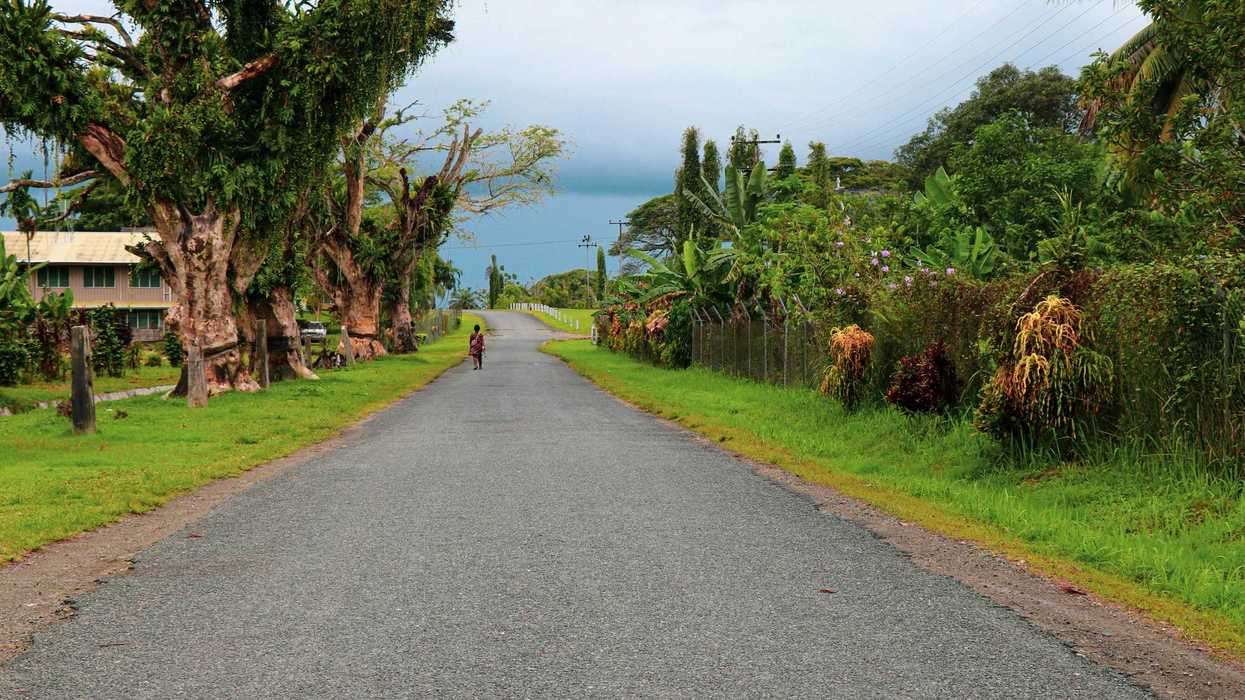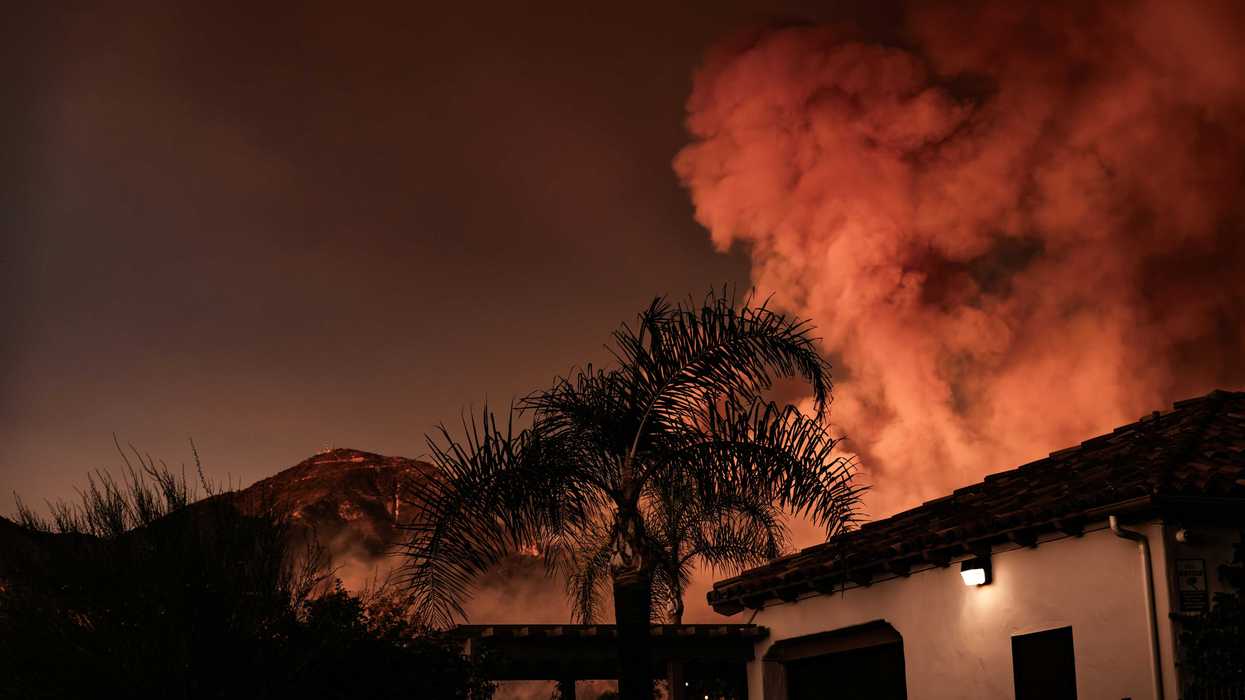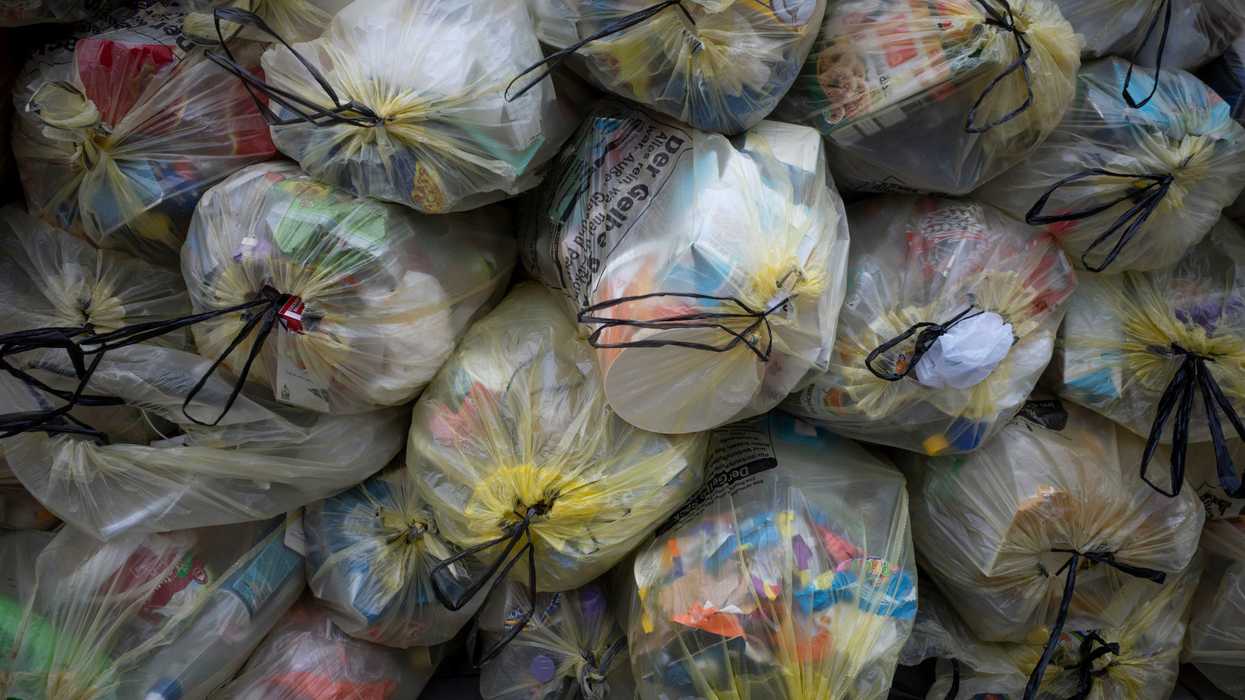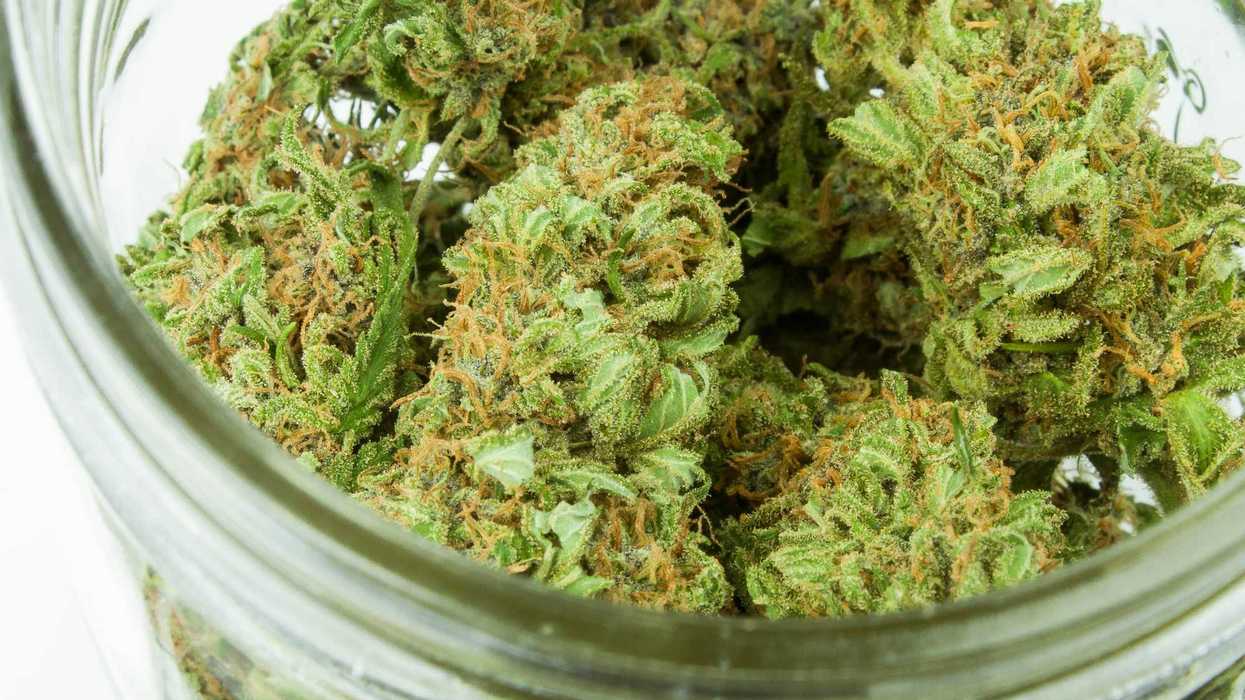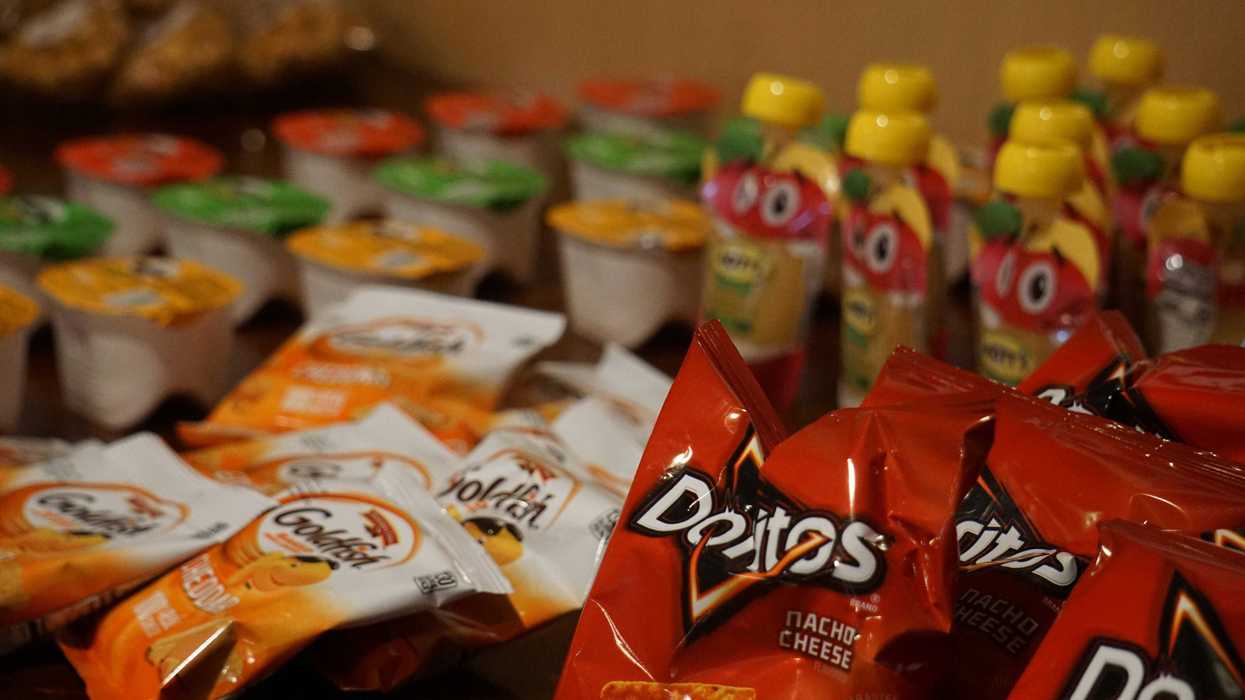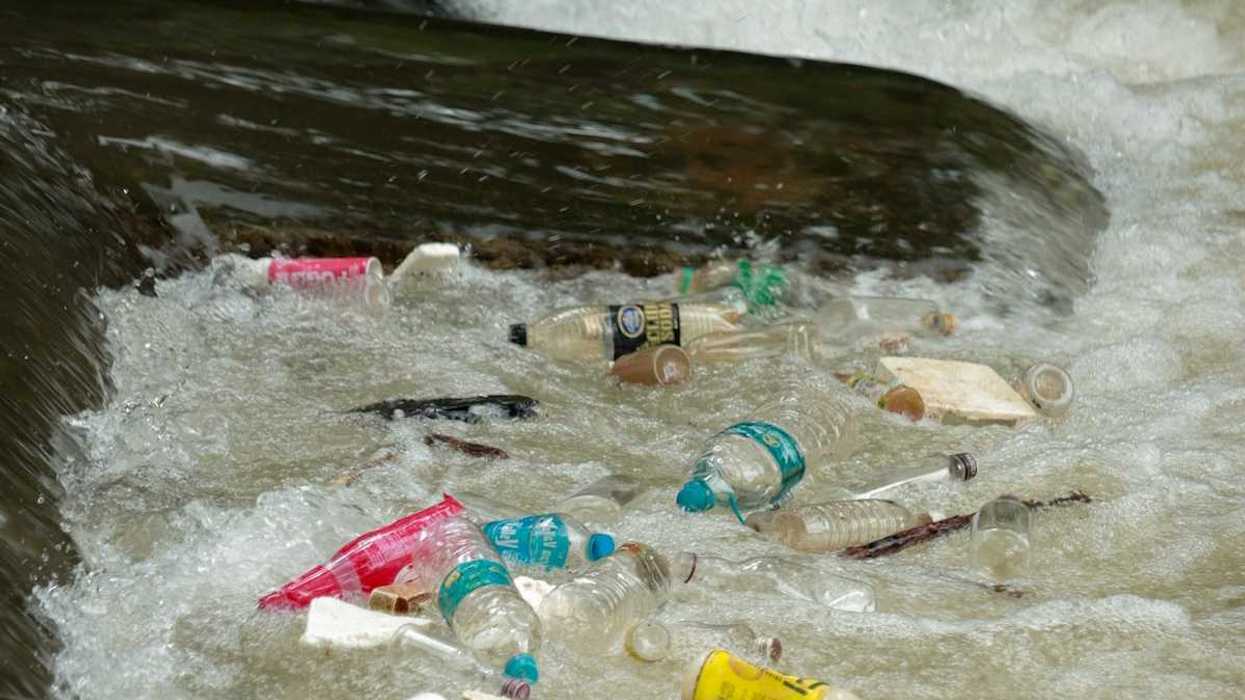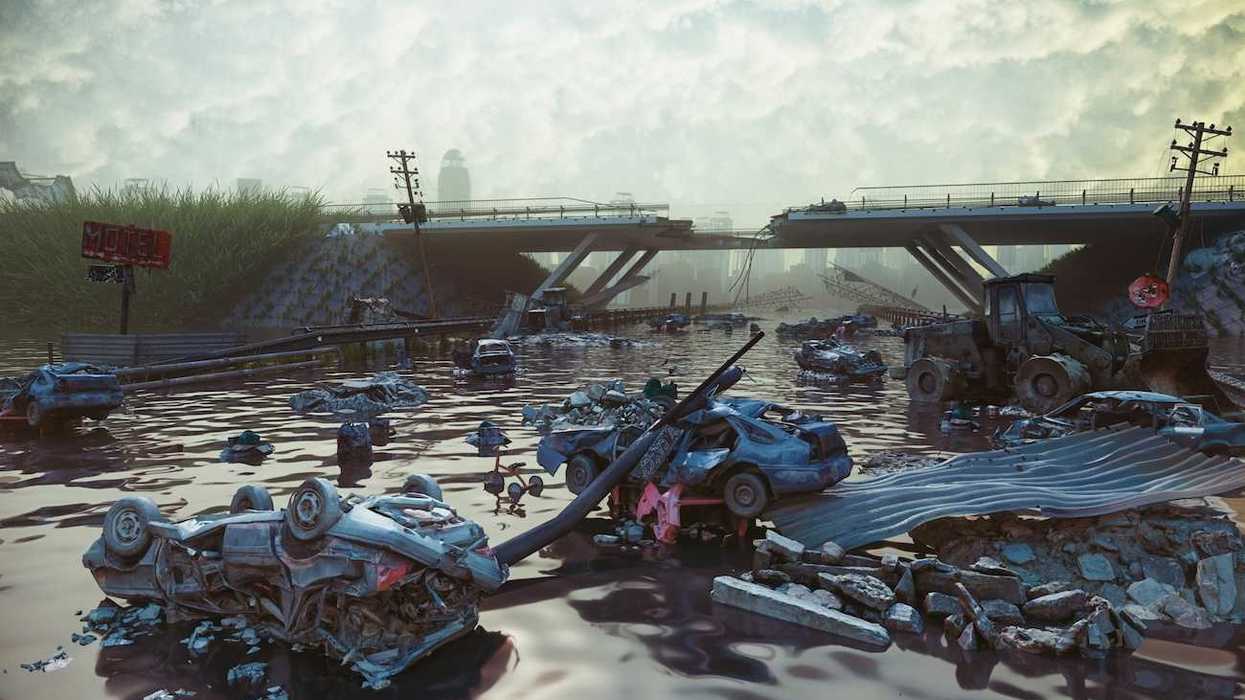Enjoli Hall joins the Agents of Change in Environmental Justice podcast to discuss how her upbringing in Buffalo, NY, inspired her commitment to understanding the role of planning in building sustainable infrastructures of care.
Hall, a Ph.D. student in urban planning at the Massachusetts Institute of Technology and a senior Agents of Change fellow, also talks about finding hope in political activism, and the importance of community organizing.
The Agents of Change in Environmental Justice podcast is a biweekly podcast featuring the stories and big ideas from past and present fellows, as well as others in the field. You can see all of the past episodes here.
Listen below to our discussion with Hall, and subscribe to the podcast at iTunes, Spotify, or Stitcher.
Transcript
Brian Bienkowski
Alright on today's podcast I'm joined by Enjoli Hall, a PhD student in urban planning at the Massachusetts Institute of Technology and a senior Agents of Change fellow. Hall talks about her passion for the city of Buffalo and how she's using urban planning to advocate for neglected communities. Enjoy. Alright, I am super happy to be joined by Enjoli Hall. Enjoli, how're you doing today?
Enjoli Hall
I'm doing okay, Brian, how are you?
Brian Bienkowski
I'm doing great. And where are you today?
Enjoli Hall
I'm in Buffalo, New York.
Brian Bienkowski
Awesome. That is a good place to start. Let's start there. So you, like me, are from a cold, industrial rustbelt city. I have a soft spot in my heart for the Detroits and Clevelands and Buffalos of the world. So tell me about growing up there and what impact the city had on you.
Enjoli Hall
Yeah, thank you so much for this question. It's, it's hard to make this short, but I'll try. So, as Keeanga-Yamahtta Taylor, she wrote this really beautiful essay recently in the New Yorker about Buffalo, and she talks about how for decades, the city of Buffalo has been mocked sort of as a lovable loser, which again, I think a lot of rustbelt cities can relate. You know, we've, we, we get mocked for our winter weather, our population loss, our economy, sometimes our sports teams. And, but for me, Buffalo is my home. I was born here, I grew up here, I've spent virtually my entire life here. My parents were born here and grew up here. And most of my extended family lives here. And I say all that to say that I am deeply rooted here on purpose. And I see all of my work really, as part of one big project to help build a better Buffalo that promotes the health and safety of Black people, especially Black women. And when I think about what impact the city has had on me, I think about one of Buffalo's nicknames, which is “the city of good neighbors.” And this nickname is ironic in some ways, because Buffalo is one of the most racially segregated and poor cities in the United States. So on the one hand, we're a city that purports to value an ethics and practice of care towards one's neighbors, which is evidenced in a lot of incredible mutual aid and community organizing that happens here, and which the pandemic has shone a spotlight on. And then on the other hand, we're a city with enormous disparities in wealth and health. And we don't see a lot of redistribution towards our residents in need at the level of local government planning and policy. And I grew up with a very acute sense of this sort of juxtaposition between practices of community care and, and policies of planned abandonment. So I grew up in a biracial household. My mother is Sicilian American and grew up in a predominantly Italian neighborhood in Buffalo. And my father is African American and grew up in a predominantly Black neighborhood on Buffalo's east side. And so as a kid traveling back and forth across the city to visit different members of my family, I sort of was able to see firsthand like these widespread disparities and neighborhood conditions. And that prompted a lot of questions about why does the city look that way. And then on the other hand, I also saw particularly with my father's side of the family, and especially with my grandmother on my father's side, a lot, I heard a lot of stories and I saw how she, her house and, and her role in the community she had, she plays a very big role in our family and in in the community. She has 10 children. And also, at one point, she operated a neighborhood food store, which served as a really important community gathering space. And so I was able to hear all these stories about the sort of hidden histories of community development that were happening beneath the surface of kind of what you see on, when you drive around the city. And so I feel like for me, all of that kind of comes down to having a sense of responsibility to the people around me and asking questions about why things are the way they are and how they could be different.
Brian Bienkowski
I like the idea that not only does national media get some of these things wrong with the parachute journalism and the, the wide angle lens on the crime in Detroit or Buffalo. But even, like you said, even just driving around, you're not getting the full picture until you start kind of digging beneath the surface and talking to community members, talking to family members. And we're going to get into some of your work and how you've done that. But I think that's a really beautiful way to talk about the places that we're from. I got chills when you first started because I, you know, my hackles were always raised 10 years ago, or whatever, when Detroit was always the kickaround, the poster child for urban neglect and abandonment. And there's always, there's always been so much more to the cities. So I really like the way you put that. And so you are, speaking of your family. So you are the first person in your family to graduate from a four year degree program. So tell me about that experience. You're not the first fellow to go through this. I've talked to a couple people about this. And I think it's really interesting to talk about being a trailblazer like this, and what was pursuing higher education like when it wasn't part of your family's history, and any challenges that maybe came up and how you overcame them?
Enjoli Hall
Yeah, so I do want to acknowledge like my mother earned an associate's degree and, and more importantly, although neither my parents attended a four year degree program, I grew up in a house full of books, and my dad in particular, was always like, avidly interested in knowledge. And I have many memories of listening to my father have conversations, which often turned into lively debates with his siblings and friends about politics and race and religion. And my father really instilled in me a love of education and a sense that learning is meant to be a collective experience that can, that can and should take place in a variety of locations, not just in schools. And so my parents were very supportive of my decision to pursue higher education, even if they weren't very familiar with the schools I had applied to, or the majors I was interested in, and lots of other details pertaining to dorming, and eating clubs, and all kinds of things. But with that said, being the first in my family was really challenging, especially because I went to like elite, historically white institutions, first at Princeton, then the University of Buffalo, which is a little more racially and ethnically diverse, and also more diverse in terms of socioeconomic status. And now I'm at MIT. And so it's been challenging, but I would emphasize that the challenges for me have been primarily social and cultural and, and less so academic. And I attribute that in part because I, I was fortunate to attend a really well-resourced public magnate school in Buffalo, from grades five through 12. And they had a lot of advanced courses and a lot of extracurriculars, so I felt very academically prepared for those types of institutions. But what I wasn't really prepared for was being socialized into a culture of white supremacy, of capitalism, of imperialism and the ways in which being in those spaces has often made me feel really alienated from the people in the places that I that I call home. And so that, especially in undergrad, that was like my first experience of being in a space like this, and I felt underprepared in a lot of ways. And so I definitely felt really angry. And I think depressed even though at the time I didn't realize that I was sort of depressed about trying to navigate these, these feelings that I didn't belong in the space. But I, I was very fortunate to connect with classmates, who are also first gen and low-income students of color, and who helped me really stay grounded and laugh a lot. As well as professors, especially in the department of African American studies at Princeton, who encouraged me to keep going when I wanted to quit and, and really supported me and encouraged me to stay in school and even consider graduate school. And I also spent a lot of time volunteering off campus as a GED tutor at a rescue mission and a youth correctional facility. So in short, I survived by really rooting myself and in Black, intellectual and political traditions as well as communities off-campus. And now that I'm currently working on my, my third post secondary degree, I've sort of gotten hip to, hip to the game, sort of, and I just kind of do my own thing. I try not to compare myself and my work to that of other people in my program or field. I try to only work with faculty and staff and students who I feel like genuinely care about me as a full person. I take full advantage of my university's health services and health insurance benefits now. And I'm just really clear on what my goals and priorities are. And I've sort of developed my own standards to periodically assess whether I'm, I'm working towards them, and sometimes my goals and priorities overlap with the requirements of my degree program and that's cool, and sometimes they don't and that's also okay. And ultimately, for me, it's about being rooted in communities beyond campus that provide a sense of accountability that exists outside of these spaces. And so I worry more about whether certain groups of people in Buffalo find value in my work than I do about what other scholars in my field think, for example.
Brian Bienkowski
That's excellent. I, I'm really glad that you were able to find a path and community and people that kept you in the field, because obviously, you're going to be and currently are a real asset to the urban planning field in your community. So I'm glad that happened. And some of what you said there reminded me, I was just listening to a podcast yesterday, it was a, it was actually a cycling journalist. But he was talking about his mental health over the past year and talked something about the fact that, you know, ‘I've been in a deadline driven industry forever. And I finally this year, realized it's okay to sometimes just sit and watch and be quiet, and maybe let deadlines pass a little bit. And be open and honest about the fact that, you know, right now professionally and personally, things aren't aligning, and I need this time.’ And I think that's really important. I think it's important to, to not always feel like we have to…there's a culture in the US of overworking and what we consider productivity. I personally don't always consider productivity as…and grad school is terrible for that. So I hope, it sounds like you've, you've figured some of that out. And I hope you have. So Enjoli, I've been asking everybody this question, what is the defining moment that shaped your identity, or event, and this could be personal professional, whatever you're comfortable sharing.
Enjoli Hall
There's a, there's a lot that I could talk about. But, so the thing about defining moments is that you often can't fully grasp their impact and significance for your life, like in the moment. Like in other words, they become a defining moment in hindsight. But I would say that the last year, especially the last few months have really been a defining moment for me, that has affirmed my identity as a Black woman from Buffalo, and more importantly, as someone who's really committed to the work of organizing and a vision of planning as sort of organizing. And so, so what am I talking about? Well, Buffalo has been making waves this year, we've been in the national headlines quite a few times this year, which is a bit unusual, I think, at least for really, really positive reasons, as we talked about before. There's been, there's always been so much great organizing work that's happened in Buffalo. But I think this year, particularly with the mayoral campaign of India Walton, who had never, has never been in political office before, decided to run against a four-term incumbent mayor, decided to run as a self-declared democratic socialist, a person who has tremendous experience as a mother, as a nurse, as a community organizer. And it's, it was just really incredible over the past year, how her campaign really built these containers for collective action, her campaign really welcomed anyone who wanted to play a role, regardless of their previous like experience and skills, and just welcomed people and brought people on, brought people together. And really, I think, planted the seeds for a lot of coalition-building and just new relationships. And also enabled us to have a really public conversation in the city about sort of competing visions for the future. And so there's things like community land trusts, or public banks, or universal health care. These are ideas that I think, you know, different groups and organizations and pockets of the city have talked a lot about and put a lot of work and effort into over the years. But this was a moment where this was really a public conversation that was happening in our local papers and on TV through these mayoral debates that they had. And just, it was really exciting for me as someone who's, who's a planner and worked in the city to see a lot of things that planners care about really just being something that a lot of people were talking about suddenly. And so being able to play a small role as a volunteer in that campaign in a couple of different capacities has felt like some of the most important work that I've ever really been a part of. And although, and so India, she, she won the Democratic primary in June, but she, but then the incumbent ran a writing campaign against her. And that was very well funded and engaged in all types of really corrupt practices and beat her in the general election. But, and obviously, that's not the outcome that myself or other people hoped for. But I think it really still feels like the beginning in many ways of, of a lot of more progressive movement in organizing and coalition building in Buffalo. And then I think we've, we've had a couple of wins recently in terms of the Starbucks Workers United on winning their first unionized Starbucks in the US here in Buffalo. And also, we had over 2000 health care workers at Mercy Hospital in South Buffalo that went on strike this fall, and were able to secure a fair contract and safe staffing ratios. And so I think those, those wins point to the fact that you know, this is this is not just a moment, it's really a movement. And it's something that I'm, has really just affirmed my commitment to the city and wanting to be a part of this going forward.
Brian Bienkowski
That's excellent. It's really good to take something positive, even, even when the outcome isn't what you want. I mean, I think politics right now can be, I know, we are recording this in late 2021. And I am trying to do my holiday cleanse of political news and news. Because it can be really, can be really frustrating, really, no matter what side of the aisle you're on, I think it's frustrating. So to find some hope, and that hope usually comes on the local level, it seems like that usually seems to be where you can find, where you think there's some opportunity for change. So I'm glad, I'm glad you found that. That's really cool. And so you have mentioned your interest and your passion and your work as an urban planner. So you are pursuing your PhD at MIT in the Department of Urban Studies and Planning. So when and how did you become interested in urban planning as a career?
Enjoli Hall
So I think, as I mentioned, like growing up in Buffalo, and just observing just segregation and inequality in the city, and just having a lot of questions, even as a kid about differences in the built environment in different parts of the city. And you know, why doesn't my grandmother's neighborhood on the east side of Buffalo have a supermarket when you know, the neighborhood that my family lived in has like four or five supermarkets like in a, in a half mile radius. And so I had a lot of questions. But it wasn't until college that I first heard the term urban planning. And I heard that term in an urban studies course that I took in my sophomore year. And I remember in particular, for that course, we read this book called American apartheid that, this book that came out in the 1990s. And, and it basically presented a lot of data to document with the author's called “Black hyper segregation” in the United States. And so that was, that was really eye opening, to start to get a sense that okay, this is not just like what I observed in Buffalo, but this is a national pattern. And it's been quite pervasive and persistent. And, and deliberate. It's the result of not just sort of like interpersonal discrimination. But this has been the consequence of public policy throughout history. And so then I took a lot of different classes, especially in the African American studies program at Princeton, that really got into sort of the many historical and current policies and processes that have created and reproduced racial segregation and racial inequality in the US. And so that was, that was really, really important and interesting to me. But in many ways, my college education left me with more questions and answers, because I was like, ‘Okay, I have a good understanding of how this came to be.’ But we didn't talk as much about like, ‘Well, what do we do about this?’ And so I still, I still left college with some questions. But I didn't want to go directly into another degree program. Although at that time, I was thinking like, ‘Oh, I think I'd probably go to planning school at some point.’ But out of college I, I worked for several years as a teaching assistant, and after school program coordinator in two Buffalo public high schools, which I really loved. But it was really apparent to me how under resourced public schools were being expected to provide all of these services and perform all of these roles, providing food for families, offering comprehensive health services, coordinating housing and employment opportunities, and other types of supports, and so on and so forth. And, and basically, schools were fundamentally like dealing with the impacts of concentrated poverty, and structural racism and community violence. And so, so after doing that work for a couple years, I was just really feeling like I wanted a better sense of like, what are the tools and what are the targets, like at the scale of the city in the region, to, uh, to address some of these things. And so I then thought it was time to go to planning school, and I did my masters in planning at the University at Buffalo, because, where else would I rather study these issues than in my hometown. And then, after I completed my master's, I worked for a couple years as a regional economic development planner in Buffalo, which was eye opening. And, and then eventually, I pursued my doctorate at MIT. And so now I'm in my third year, and I think, I think the thing about planning as a field is it's very much directly implicated in racial segregation and a lot of racial violence and other forms of violence enacted upon communities. And yet, I still think that it can be a tool that allows us to really try to intervene in the material conditions of people's everyday lives, like the places where we live and work and play and pray, and to really think about how our everyday environments shape the types of social connections that we have, shape the types of economic opportunities we have access to, shape the types of reproductive labor and care work that we're able to perform. And so, so because of all of that, I still find value in planning, even as it has been this, this force for so much harm in communities.
Brian Bienkowski
So you mentioned some, you know, racist and unjust practices that have done harm to communities, not just your community, but communities throughout the United States. And, you know, bigger than that, broader than that. So approaching this through a public health and justice lens, like your work does, give me kind of, you know, break us down, give us some examples of some of these practices, and then maybe some of the ways that you're trying to disentangle them and correct them through your work.
Enjoli Hall
Yeah, so um, I, I decided when I entered my PhD program for a variety of reasons, frankly, personal reasons, I was dealing with some health issues and some other people, my social network, were also dealing with some health issues that really prompted me to reflect on what did, what did I want my work in my life to really do. And health kept coming up as something where, if you don't have your health, you don't, you don't really have much else. And I wanted to really start to integrate more of a population health perspective in how I thought about planning. And what's really interesting is that the emergence of planning as a profession and a field had its basis in public health initiatives. So the fields of planning and public health really emerged together in the 19th century to try to address some of the problems that were created by rapidly industrializing cities such as overcrowded housing, and noxious industrial wastes, and outbreaks of infectious diseases. And so you got things like building codes and sanitary surveys and parks to help alleviate some of those conditions. And then the field sort of became separated over the last century, but now they're starting to reemerge. And there's a growing appreciation for the need to reconnect these fields. And so my work is, in some ways, is actually to bridge planning and public health is actually quite traditional. And so for me, what I think is really valuable about this perspective, and how I'm starting to think about incorporating this more in my work, is really thinking about how planners can use health data, and how they might frame that data in a way to sort of raise the stakes of the decisions we make about the built environment. To say that these things, environments, the features of people's environments are embodied in our health, and they, and so differences in neighborhood environments also mean differences in health and health inequities. And I think that health can be a really useful lens to, to help people appreciate that. And it also, on the other hand, a lot of times in the field of public health, when it comes to addressing health inequities or designing health interventions, there's often a disproportionate focus on changing people's behavior, or focusing on health education. And, you know, trying to encourage people to eat healthy. And not that those things are not important, but it ignores the reality that our, our environmental conditions really play such a major role in shaping our health. And so bringing planning and public health together allows planning to make the case that you know, we really want to think about how we shape the context for health, in the places where people live and work. And so what I'm starting to get into right now is a project where I really want to focus on Black women's health, in particular, in rust belt cities. And I'm really in particular interested in how, when it comes to health, when you look at the industry sector of health care, which is one of the largest growing industry sectors in a lot of rust belt cities and regions, and is disproportionately staffed by Black women and women of color and a lot of different occupational classes within that industry. And so I'm really interested in trying to understand the experiences of Black woman care workers in a lot of these professional care sectors, who on the other hand, are also usually playing an important role in their families and communities of having to care and provide. And really wanting to get a sense of, on the one hand, they're really integral to the health of their communities and other people. But what, what does that mean for their own health, and the stressors they experience and the meanings they derive from trying to support the care of other people? And so I have more questions than answers at this point. But that's kind of the direction that my work is leading me in, at the moment.
Brian Bienkowski
And it seems like with, with COVID, a kind of an ongoing two year crisis that this seems a really timely study, looking at the kind of the health of health care workers and people in that field. Because they have been stressed for two years now nonstop on top of the normal stress. So that sounds like a really fascinating study, and I'd be curious to see how that turns out. So what is something, you know, I think we all think of urban planning, we all have our own notions of what it is. My first thought, erroneously, I don't live in a city. But of course, of course, there's, you know, towns and stuff around me, my first thought is like, we decide where the, you know, where the roads go or something like that, you know, something simple. So tell us something about urban planning that we'd be surprised to hear, something we don't know about.
Enjoli Hall
Sure. So I mean, you're not wrong. Roads and infrastructure is certainly an important part of planning. And I think a lot of people think planning, and they might think like housing and transportation, and buildings, which is, which is definitely part of planning. I have a particular mentor who I'll talk about in a moment who I feel like if I, if I didn't answer this question in a certain way, it would be really bad. And so for me, I think planners don't think enough about food. And so as a result of the ongoing COVID-19 pandemic, I think we're all much more aware of how essential food infrastructure and food workers are to, to cities and regions. But I think many people, including many people in the field of urban planning, don't think about how planning touches every bit of the food supply chain or food system from where food grows, to how it gets moved from one place to another, and then ultimately, how do people eat it. And, you know, it's kind of ironic because local government planners and economic development folks have continually shaped communities’ food infrastructure, but often with little awareness of how they're doing so. So for example, planners create land use plans that often place prime farmland in the path of development. We regulate access to water for food growers, we tax food businesses, we often enforce very outdated zoning codes that prohibit urban agriculture. And we do this all often with little understanding of, of communities’ food infrastructure. And in a 2014 survey, actually, of members of the American Planning Association, researchers found really low levels of engagement by local government planners in the realm of food. So only 1% of over 1100 respondents to this survey, who worked for local governments in the US named food systems as a priority in their work. And yet, again, in the wake of this ongoing public health crisis, which has exacerbated which, already dire conditions of food insecurity, we've seen high unemployment producing long lines at food banks, we've seen loss of in-school meals for children when schools close, we've seen interruptions in supply chains leaving shelves empty. So with all of this, there's a growing awareness that perhaps planners and policymakers should be thinking more about community food systems as like a public infrastructure, like roads. But in many ways, planning and policy continues to sort of lag behind. And so communities are kind of stepping in to fill the gaps where policymakers are falling short. And this is something that I actually worked on when I was doing my master's in urban planning at the University of Buffalo. I had the very good fortune to work with Dr. Samina Raja, who's a professor of urban planning, and whose research lab on food systems planning is sort of one of the first in the country to focus on this. And so we worked on this national project called “Growing Food Connections” that was looking at both urban and rural counties across the United States and trying to understand basically the challenges that both small farmers and food insecure households are facing. And basically how local government planning and policy could play a role in better supporting these two groups that are really underserved by our current food system. And the last thing I'll say about, you know, why food, and food systems are planning is that it's not just about increasing the production and consumption of healthy food locally. But in our work, we also talked about the food system as a lens and lever for social transformation. And we saw the food system for example as a, as a good entry point for trying to understand and intervene in like carceral and industrial agriculture systems, for example. So, so yeah, planners should think more about food.
Brian Bienkowski
I love all that. I used to work in urban agriculture in Lansing, another, another wonderful rustbelt city. And I can't remember, there was some kind of land bank there or something, you know, some kind of city owned property. And when I was working at the Lansing Garden Project, there was an effort to turn over some of this land to urban agriculture, to farms. And just on a very small scale, what you were talking about made me think of that, because it became this, instead of a blighted property, right, it became this beautiful community gathering space that was not only offering some jobs to some people in the neighborhood, not only giving healthy food to people in the neighborhood, but giving them something to be proud of, you know, people from around the, that, the whole east side would come to this. It was the Hayford, Hayford street garden, I think. So yes, yes, food is so important. I love that. That's a really, really cool answer. And honestly, something I hadn't thought about with urban planning. So you nailed that. So Enjoli, you mentioned, you mentioned you worked outside, a little bit outside of your field, maybe not outside your field, but outside of academia. So you've worked at like public health agencies and medical centers. Tell me a little bit about how these experiences, and how this relates to your urban planning work and what you've taken from these jobs and experiences.
Enjoli Hall
Yeah, so right before I started my PhD, I think I mentioned I was working as a planner here in Buffalo. And, and I was working on this planning project for a large public hospital here in Buffalo. And basically, the hospital had acquired a large piece of vacant land adjacent to its campus and they wanted to, and it wanted us to sort of, as planners, to come in and do some research and community engagement to get a sense of what kinds of services or amenities would people who lived in, worked in nearby be interested in? And what would it be beneficial to. And it was through that experience that I really started to think about the roles that hospitals and health systems play in communities beyond the health services they provide. So in many cases, hospitals are major employers in communities, they're major purchasers of goods and services as much as they provide them. They're often large property owners and real estate developers. And in all of these roles, hospitals and health systems have the ability to do good, and they also have the ability to do harm. And so it was through that project I started to think about how it's kind of interesting that as planners, especially I mean, this, there's this narrative of like “eds and meds.” So again, in a lot of like, especially like deindustrializing cities and regions , the idea is that major educational and medical institutions are sort of these anchor institutions, because they're not going to just up and leave the same way a manufacturing plant might sort of relocate to another part of the country or overseas. And so I started to take an interest in this a little bit. And that's something that I'm still, still kind of interested in, in trying to trace. Like the investments of these institutions and communities. And I've done a little bit of this work in in Boston with my adviser. But I also had the opportunity to intern last summer with the Massachusetts Department of Public Health, specifically in the Bureau of Environmental Health, because again, when I started my PhD, I was like, I really want to think more about health. And I really want to think about how planners can use health data. And so I was interested in working with the health department to get a better sense of like, what data do they have access to? How do they use it or not use it, who are they collaborating with, in terms of other government agencies? Like do they collaborate with planners? Like what does that look like? And so it was, it was a really great experience. And sort of in that role, what I was doing is, I was helping the Bureau of Environmental Health really start to think about how they could develop a strategy for sharing more of their data with like the state transportation agencies and, and some environmental justice organizations and initiatives that the state was trying to really prioritize more investments in. And I think, something we talked a lot about is, there's often an emphasis even now on like, oh, data, data is a good thing. More data is always good, you know, especially data at a really like, smaller, like area level. So if we can get like neighborhood data, this is something even in COVID that people have talked about, we need more data, we need to to map this data we need to understand, like neighborhoods and areas that are you know, maybe having really large outbreaks. And the tricky thing with this data is that if it's not properly contextualized and framed, it has the potential to further stigmatize communities that have been under resourced, that are oppressed. And so health data in a way, by shedding a spotlight on really large concentrations of disease in particular areas—if, if that's not contextualized with history, and with an understanding of how those conditions are the result of really unequal economic conditions and poverty, then it just leads to in some ways, and justifies, increased surveillance, increased policing, increased control of communities. And so that was something that we tried to think about of how do we want to sort of present data on a website or if we get a request for data, do we want to sort of provide a certain type of narrative or language that we encourage people to, to use? And so that that was some, some of the things that I worked on, and it's something that I again, I'm still continuing to think about. Because it's really challenging to, especially, I think this is something that a lot of researchers talk about when you do work, and then it gets picked up maybe by media or media is trying to report data and how in a lot of cases there's not the proper context and interpretation and so, so that's tricky. And so I think it begs the question of like, how do, what’s the role for like community media or other forms of media to really control those narratives and those framings?
Brian Bienkowski
Totally. So where are some areas that we could be optimistic about the future of urban planning? What are you seeing, whether it's in Buffalo or beyond, you know, good practices solutions, undoing some of the, the racist underpinnings of prior planning, you know. What are you seeing that's good that we can be optimistic about?
Enjoli Hall
I think wherever I see planners, and by planners in this case I mean people who are planning scholars and researchers as well as people who are like professional practicing planners, I think, wherever I see planners that are really trying to align themselves and their work with progressive social movements, like the movement for Black lives, like the push for a Green New Deal, conversations around abolition, I feel really encouraged and inspired and hopeful about the future of the field. I think that we need to be taking more cues from social movements in terms of the types of public investments as well as like, divestments that they're calling for. And I think that's actually a really important thing that I think is often missing is—There are a lot of planners who understand like, yeah, we need to invest more in affordable housing, we need to invest more and you know, neighborhood green spaces, you know, there's an appreciation that we need, you know, more public investment in these in these goods. But there's less attention to how we also need to be trying to address systems of control, systems of policing and incarceration that call cause harm to communities. Like you, you can't do one without the other. And so I think, for example, demands for abolition often do a really good job of linking these two things, that we don't have to choose one or the other. And in some ways, it's actually a shift in public resources, perhaps away from policing, and toward things like health facilities, our schools, housing. What's really interesting, though, is that I think this is a conversation where it is something that more and more people I think are getting on board, especially in the last year, I think, especially last summer, with a lot of protests around the country, more people are starting to think about these issues. But it is an area where there's a lot more education and work to be done. And this was something that came up in the the mayoral campaign here in Buffalo, to be frank. I did a lot of door knocking and phone banking. And the sticking point for a lot of people was the question of policing. And, you know, for example, India Walton had proposed some fairly minor reductions in the Buffalo Police Department budget, which has been consistently growing over the last few years. And this was a this was a huge sticking point for a lot of people, a lot of people are really concerned about, well, if, if we need more police to address issues of safety and address issues of crime. Even though we continue to invest more and more than police, and yet, crime does not go down. And people don't necessarily feel more safe. And so I think, I think there's an important role for planners and other, and other people to play in really trying to create spaces for education and conversation and dialogue about what are other options. What actually keeps community safe? What do people actually want for the futures of their communities. And wherever I see planners really trying to uplift the sort of alternative visions and desires, I think there's a lot of reason to be hopeful about this field. That said, in some cases, I do think a lot of that work might have to happen outside of a planning classroom or a planning office. Sometimes they might mean that some of the most important work that planners do might, you know, kind of go unrecognized, maybe you're, you're helping organize a campaign. But I think it's really important work to be done. And I think we kind of really have to ask ourselves, what kind of, what side are we on? And what role do we want to play in these movements for change?
Brian Bienkowski
This segues really well into a question I wanted to ask you about integrating communities into urban planning, research and practice. So obviously, you know, door to door working on a campaign, working on advocacy work, it's obvious you're out there in the community. But when it comes to your research, and putting the research into practice, what role has community engagement played? How did you do it? What tips would you have for others? And you know, the idea is to work with communities as opposed to working on them. So, this has come up a lot with, with a lot of different fellows, but not so much with urban planners on here. So I'd be curious to hear how you've done this.
Enjoli Hall
Yeah, so. So for me good research and good planning begins with people. And so, I mean, at the end, in the most basic sense, the communities that are most impacted by an issue have unique forms of expertise, in my opinion, concerning that issue, which should be integral to how we understand and address the issue. And so that's sort of the basic premise of a lot of community-engaged, action-oriented research approaches, as well as a lot of approaches to public participant, public participation in like, professional planning practice. And, obviously, there's a wide spectrum of what involving communities in a research project or in a planning process can look like. And that's often a lot of the focus of conversations around community engagement is, you know, you know, consideration of, are we just consulting communities after we sort of come up, come up with an idea for a research study or a plan? Are they being consulted sort of after the fact? Are they really meaningfully involved at all stages in the process? And those are certainly really important conversations to be had, to have. And I think it's over time, there's sort of more consensus that you have to really try to involve communities as early as possible in a research study, or in a planning process, if that engagement is to really be meaningful, and to really have impacts on the relevance and the rigor of the, the work that you're doing. And I can give an example of this from my work. So I worked for a summer at a research institute at the University of California, Berkeley, and I, while I was working there, I contributed to this power project so power in participatory action research project in the Bay Area. And, and there's a lot of things that I think are really great about this project. So basically, this project began with a group of formerly incarcerated people in the Bay Area who were facing challenges to accessing employment and housing. And they wanted to think about how do we sort of advocate and push for local policies to reduce some of the barriers were encountering. But at the time, there was very limited local data, to help them make their case. And so they, through their own, like interpersonal relationships, knew some researchers and sort of entered into conversations about how could we sort of, you know, design a research project, carry out a survey to collect some data. And what was really great is that they had formerly incarcerated people designing the survey, being trained and being paid to be trained about how to deploy the survey, about how to analyze the data that was generated from the survey, and then how to translate those findings into like a report, but then also what it, did it mean for policy advocacy. And what I thought was really cool about this project is that not just, okay, the people most impacted by the issue are carrying out the research in all stages, that's good. But also through this, there was a real emphasis on building relationships, and also building leadership skills. And so it was about really helping the people in this process being prepared once the research was done to be in a position to really advocate for themselves. And so they were able to do that and advocate for a ban-the-box policy in employment, I think, was the first one. And then from there, they started to think about organizing other campaigns. And for me, I think that that's something that I think we don't always do a good job of emphasizing enough of in both research and practice. Where it's not just about meaningful engagement, but it's about building capacities of people most impacted to not only understand, because they often do understand, but like to be able to then take action on a problem. And I think a lot of that comes down to building relationships and building skills. And I think there needs to be more attention to how to how to do that. The other thing I'll say about sort of community engagement, and especially what it means for me in my work is, for me, I often do not feel comfortable sort of taking on a project, especially a project that has a community engagement component, whether it's a research project, or like a planning project, if I don't have a sense that the people I'm working with, if I don't feel accountable to them, and if they're not accountable to me, if there's not this like mutual reciprocity, if there's not preexisting relationships that sort of precede and then go beyond the project, I often feel uncomfortable about that. And for me, it's even, as time goes on becomes more and more important to really have a very personal stake in the work that I'm doing. And so that means that I often turn things down, because it really is important to me to do work that's really rooted in relationships, and that is not extractive. And because I think you can do really good in community engagement, but it's really about what is your actual relationship to that community beyond this project, and that's a question that I really am trying to ask myself and ask other people to sort of really push back and really think about what accountability means in this type of work.
Brian Bienkowski
Enjoli, you have taught me so much today about urban planning and community empowerment, and I mean that. You have a brilliant mind and I could listen to you talk about this all day. This has been really fascinating. And Buffalo, if you are lucky enough to stick around there if they're lucky enough to have you stick around, they're, they're in good hands. I'm really excited to see what happens with some of your practices, or your research going into practice there. So thank you so much. And I have one more question. And that is what is the last book that you read for fun?
Enjoli Hall
Um, okay, so I turn to, I turn to bell hooks a lot, which, she very sadly passed away last week at 69 years old. And I often read her a lot when I'm feeling a sense of despair over the world I'm in. So I think, even the day before she passed, I, I had just finished up the semester, and I turned to her book “All About Love,” which is a book I often return to. It's like always either like in my backpack or on my coffee table. And so that is a book that I just picked up last week and started rereading. And what I love about that book is it really makes me think deeply about the infrastructures of care that I want to help build and support in my classrooms, in my community. And so, and so I just always find myself coming back to her work. And so, so yeah, so that's the last book I read for fun.
Brian Bienkowski
Excellent, I will definitely check that out. Thank you so much for being here today.
Enjoli Hall
Thank you for having me. This, I really appreciated these questions. And it's, it's, I always appreciate the opportunity to talk about Buffalo and how great it is.
- LISTEN: Nayamin Martinez on organizing for farmworker justice - EHN ›
- LISTEN: Rodrigo Alatriste-Diaz on the intersection of labor and ... ›
- LISTEN: Regan Patterson on transportation justice - EHN ›
- LISTEN: Black histories and visions of urban planning - EHN ›
- LISTEN: Carlos Rodriguez-Diaz on infectious diseases and social justice - EHN ›
- LISTEN: Carlos Rodriguez-Diaz on infectious diseases and social justice - EHN ›

